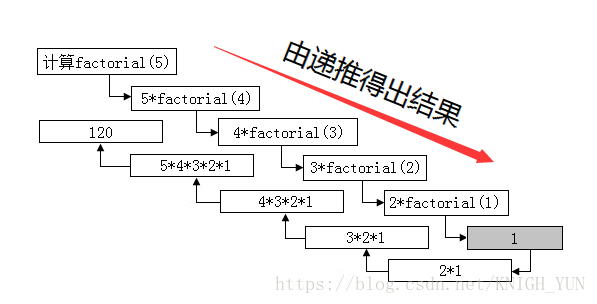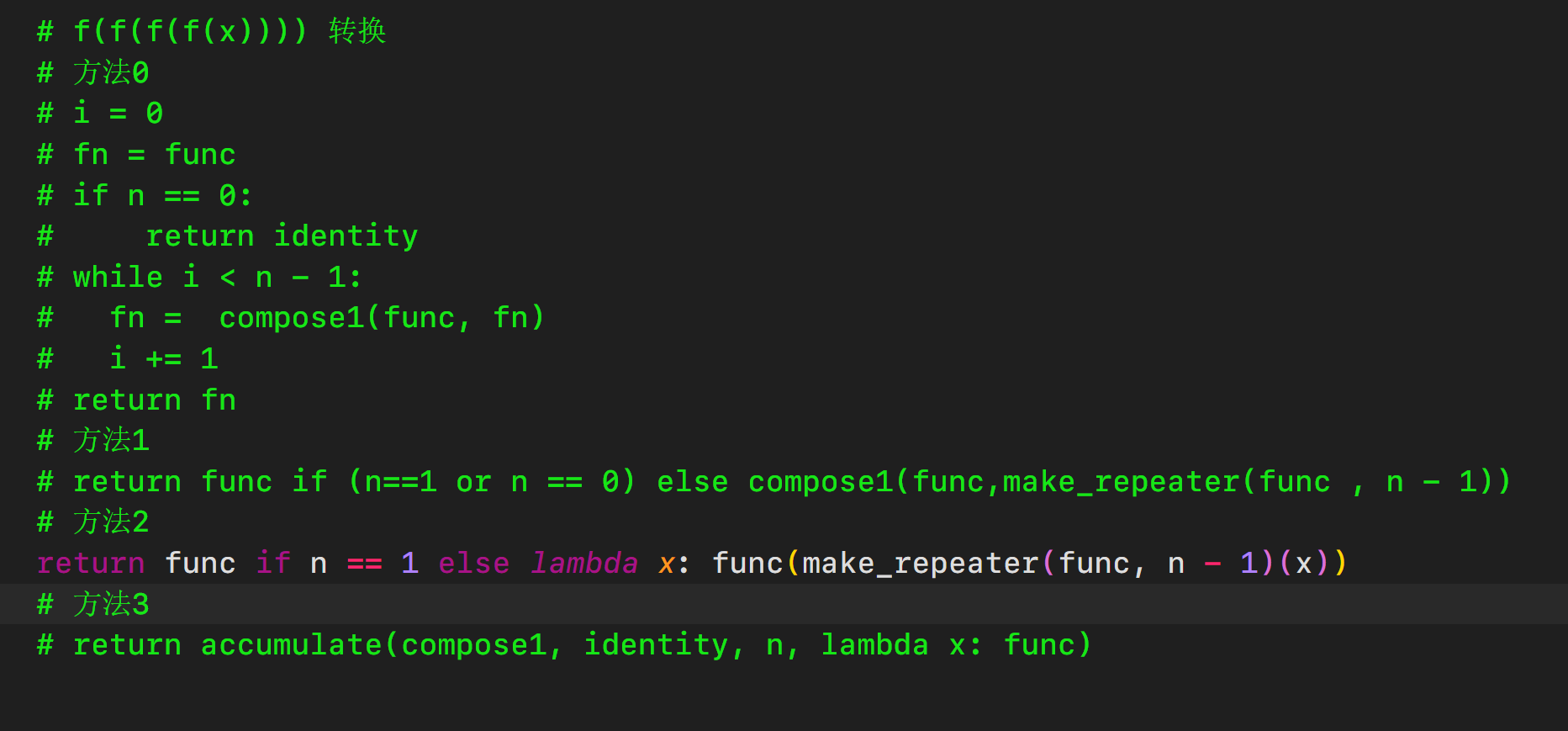遇到了一个很棘手的问题...
遇到了一个很棘手的问题...
Q3: CS61 - NAY
Difficulty: ⭐⭐⭐
Part A: Implement cs61nay, which takes a two argument function combiner and positive integer n and returns a function.
The returned function then takes n arguments, one at a time, and computes combiner(...(combiner(combiner(arg1, arg2), arg3)...), arg_n). Notice combiner takes in two integers and returns one integer.
For example, the first doctest has the returned function f = cs61nay(lambda x, y: x * y, 3). Now when f is applied to three arguments, like f(2)(3)(4), it multiplies them together, 2*3*4 to get 24.
IMPORTANT: For this problem, the starter code template is just a suggestion. You are welcome to add/delete/modify the starter code template, or even write your own solution that doesn’t use the starter code at all.
HINT: For the n = 1 case, the returned function doesn't use combiner.
这道题初看简单,具体做起来并不容易...
以往做类似的题,我的思路大概是用一个值去乘以另一个函数值,直到边界情况,如经典的计算阶乘
def factorio(x):
if x == 1:
return 1;
else:
return x * factorio(x - 1)

于是对于这题,我也想使用类似的思路,可是却找不出类似factorial(n - 1)这样的项,可能是因为我们开始有n个参数,接下来就应该有n-1个参数,难以简单的表示成一个函数的调用。
我的一个失败的尝试
def cs61nay(combiner, n):
""" Return a function that takes n arguments,
one at a time, and combines them using combiner.
"""
if n == 1:
return lambda x: x
else:
return lambda x: lambda y: combiner(x, cs61nay(combiner, n - 1)(y))
n个参数,是这道题最大的特点,也许便使得曾经的思路不再适用——我们不能显式地给出一个返回值。
于是在这里需要用另一种方式思考。
对于
>>> f = cs61nay(lambda x, y: x * y, 3)
>>> f(2)(3)(4) # 2 * 3 * 4
24
我们无法直接实现2 * f(3)(4),也就是类似计算阶乘的思路
这里可以边计算边递归,即从前到后两两合并。这题要求我们按顺序计算,因此某种程度上也需要我们这样做。
首先计算头两个,那我们还得计算呀,这时关键的一步就是把计算结果继续作为参数
也就是把头两个元素x,y替换为combiner(x, y),也可以说是应用结合律首先计算头两个元素
这样的好处是减少了参数个数,也就是减小了问题规模,同时还规避了参数个数未知,无法显示写出表达式等问题
这也是递归,递归地顺序计算
代码:
def cs61nay(combiner, n):
""" Return a function that takes n arguments,
one at a time, and combines them using combiner.
"""
if n == 1:
return lambda x: x
else:
return lambda x: lambda y: cs61nay(combiner, n - 1)(combiner(x, y))
另外在群里也看到了另一道题(据说是邱奇数),思路也十分多元,其中方法二与本题有异曲同工之妙
Homework 2 | CS 61A Spring 2021

# 方法4
def make_repeater(func, n):
"""Return the function that computes the nth application of func. """
if n == 0:
return zero(func)
return successor(lambda f: make_repeater(f, n - 1))(func)
def zero(f):
return lambda x: x
def successor(n):
return lambda f: lambda x: f(n(f)(x))


 浙公网安备 33010602011771号
浙公网安备 33010602011771号